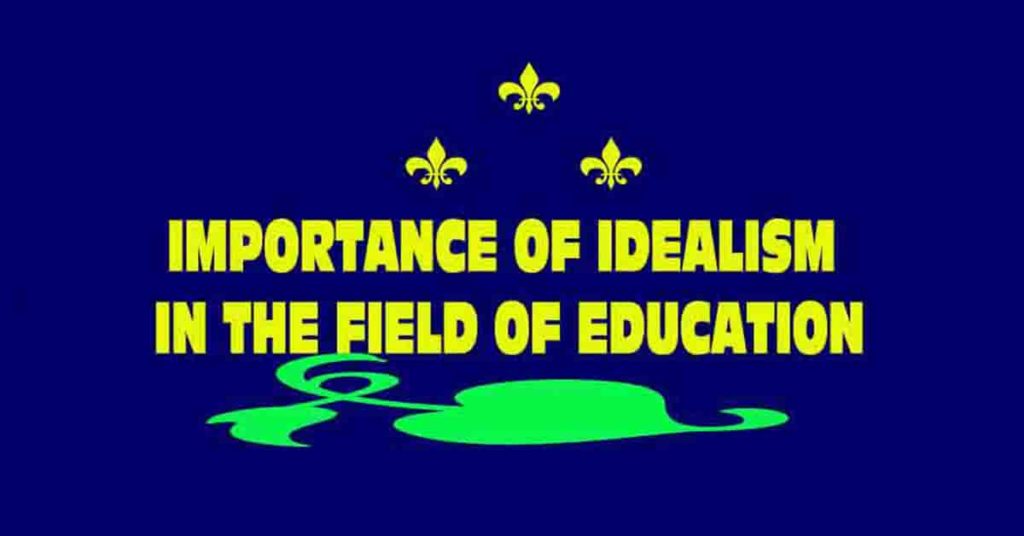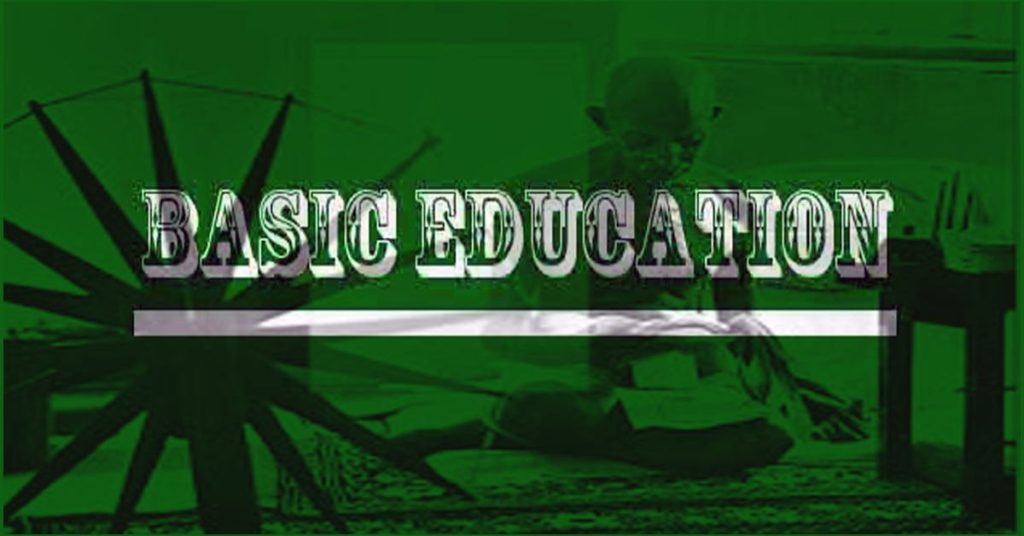IDEALISM IN EDUCATION
In this topic, we are going to discuss the “Importance of Idealism in Education.” From the metaphysical point of view, According to their beliefs of philosophers, viewpoints and approached methods are categorized into three, viz, monist, dualist, and pluralist. Therefore, these three are called monism, dualism, and pluralism.
Monism:
According to Monism, there is one ultimate substance or fundamental reality. There are two branches of monism as Materialism and Idealism. Materialism declares matter as the fundamental reality which gave birth to Naturalism. While Idealism declares idea as the fundamental reality.
Dualism:
Dualism declares both mind and matter govern the universe,
Pluralism:
Pluralism declares that reality is not fixed and substances govern the world. This gave birth to Pragmatism.
Meaning of Idealism:
The philosophy ‘Idealism in education’ is an age-old school of thought originating in human nature itself. It has started its career since the dawn of human civilization and continues until today in some modified form or the other.
Greek philosophers like Socrates and Plato were great idealists. ‘It has exercised a potent influence on the mind of man throughout the ages.
Etymologically, Idealism’ may be derived from the Words ‘idea’ and ‘ideals’. Idealism has rooted in the Greek word, ‘Idein’ meaning ‘to see’.
From the epistemological standpoint, it is better-called idealism, implying thereby that thought (idea) has greater validity than the physical objects. From the normative standpoint, idealism attaches greater importance to the ideal than facts.
Thus, the term Idealism connotes different meanings when placed in different contexts. Whatever it may be, in the philosophy of Idealism both ideas and ideals are the pivotal points.
So the idealists give importance to man, “mind and soul”. Idealism stresses the view, “Nothing exists except an idea in the mind of man, the mind of God or a super or supernatural realm,”
Philosophical Bases of Idealism (Metaphysical)
Idealism emphasizes Spirit, Self, or Mind. It interprets man and the universe in terms of Spirit or Mind. Idealism gives importance to the ultimate reality in the world is spiritual in nature.
Idealism believes, The entire universe is an extension of the Mind or Soul. It does not regard the world as a natural phenomenon and the Physical world is the creation of the mind. As such, natural phenomenon: is not real but the reality is spiritual.
Idealism has no faith in the material world which is destructible, perishable, and changeable. It cannot give real happiness and solace to man. The material world is not the complete manifestation of reality.
Nature of reality:
Idealism holds that reality lies in the mind. Mind or spirit that each man experiences in himself are real and true. The physical world is just a manifestation of this great spirit.
Reality is moral and spiritual rather than material. The material or physical world that we see is changeable and perishable. But the spirit or essence or idea behind the object cannot be destroyed. For example, the rose may die or fade away but the idea of the rose will remain forever.
The physical object is not real. The idea of a white rose is always the same. A man putting on blue goggles may say that it appears blue, so also a man wearing red goggles will say that it appears red. But their conceptions are deceptive. Therefore, reality does not lie in the object but lies in the mind.
The idea of mind:
According to the idealists, mind, and soul rather than matter and body are much more important. To an idealist, every person has a mind or self, or spirit which is not material but spiritual. The individual mind is a part of the Universal Mind.
According to Hindu ideology individual mind (Atma) is a part of the Universal mind (Paramatma) or God.
The Universe! mind or God is the Creator and others are created by Him. Man is a microcosm The Universal Mind or God is within the macrocosm. fountain of all human valuer
Epistemology:
Idealism says that reality is the Self or Spirit or ‘Brahma’. Therefore, real knowledge is knowledge about Brahma or God. In other words, self-realization or Brahma Gyan is real knowledge.
The knowledge gained through activity and creativity of the mind is much more important than the knowledge received through sense organs.
Axiology:
Idealism gives importance to higher values of lite. These values are perennial and eternal which never change. It considers values as absolute, changeless, perennial, timeless, and universal.
It believes that values can be neither created nor destroyed, Values are the creation of ideal age-old discoveries by sagacious sages and scholarly seers in the past. Man has to discover these values, Man has to realize these higher values or ideals of life.
These higher values are Truth, Beauty, and Goodness. In other words Satyam, Sivam, and Sundaram the spiritual values. Truth is an intellectual value, Beauty is an aesthetic value and the Goodness is a moral or ethical value. Together they all form Good.
Truth is Good and Good is Beautiful (“Satya hi Siva he and Satya hi Sundar he”: An ethical hyim in Sanskrit, Satya means truth, Siva means God and Sundar means beautiful ) Satyam, Sivam and Sundaram are, thus identical to each other.
Plato recognized the identity of all three spiritual values. The famous Romantic poet John Keats has sung: ‘Beauty is Truth and Truth is Beauty, That’s all you know on earth and all you need to know.”
These values are already existing in the world. Attempts should be engineered to discover them, Heaven does not lie above us but lies about us. Human life is the highest creation and thus, glorious.
Let us make our lives sublime and live in a glorified manner These higher ideals of life were true yesterday, are true today, and will be true tomorrow.
Need and Importance of Idealism in Education:
The idealists regard the importance of education from the point of spiritual necessity and social necessity.
Spiritual necessity:
Human life is the best creation of God. It has both biological and cultural or sociological aspects. The biological need is fulfilled easily but cultural needs are to be fulfilled by education.
The culture makes a man an individual. Human nature is divine and spiritual. Therefore, education is an essential requisite for the child to realize the divinity and spirituality in man.
Social necessity:
Man is an objective projection of society in an individualized form. This should reflect the good in society. Therefore, from the spiritual and social point of view, education is a vital necessity in the philosophy of idealism.
The great philosophers Plato, Comenius. Descartes, Spinoza, Leibniz, Berkley, Kapila, Hegel, Schopenhauer, Fitche, Bergson, Giovanni Gentile, Pestalozzi Froebel, Bosanquet, Royce, Emerson, Neil Horne, Gandhi, Dayananda, Tagore, etc. who profounded the idealistic school in education.


